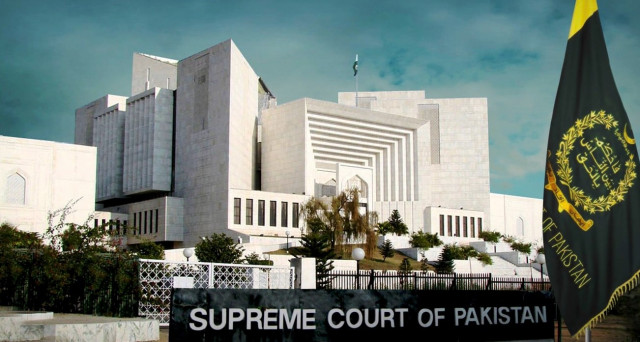Consequences?
SC stresses implementation of its judgment on the NRO; says govt should know consequences of not complying.

Consequences?
The court ruled that the government should know the consequences of not complying the court’s judgment on NRO.
“This is the judgment under the Constitution hence certain things are required to be done in letter and spirit,” Chief Justice Iftikhar Muhammad Chaudhry remarked while hearing a suo motu case against non-implementation of its judgment of December 16, 2009, declaring National Reconciliation Ordinance (NRO) as ultra vires of the Constitution.
Attorney General Maulvi Anwarul Haq informed the court that Prime Minister Yousaf Raza Gilani has approved the summary moved by the law and justice ministry regarding Swiss cases. He said the contents of the summary would be submitted before the court on Monday.
“But kindly tell us, Mr Attorney General, whether the judgment of the court on the NRO has been implemented or the prime minister has decided to deviate from the verdict?” the chief justice asked the attorney general.
In order to ensure the rule of law and supremacy of the Constitution, he said, “implementation of the court’s order is the need of the hour.”
“(The) prime minister is a wise man. He must know the consequences,” the CJP remarked, adding that if the court’s decisions are not implemented today, nobody – neither the police nor criminals – would accept the court’s order tomorrow.
The Supreme Court had directed Law Secretary Masood Chisti to move a summary to the PM for re-opening of money laundering and Swiss cases against President Asif Ali Zardari and submit a report by September 24.
The law ministry, however, is believed to have asked the premier on Friday in its summary to request the apex court to defer implementation of the judgment on NRO till Asif Ali Zardari walks out of the presidency.
The chief justice told the attorney general that the court has to take some decision if its judgment on NRO is not implemented in letter and spirit. “The day when you will deviate from the Constitution it means you are telling something to someone. You know what I mean,” the CJP told the attorney general.
During the course of the proceedings, the chief justice inquired of the AG as to whether the summary moved to the prime minister was made public. The AG replied in the negative. Then how has it appeared in the press, the CJP asked the AG. The latter replied that the contents of the press report regarding the summary were not correct. He told the court that the contents of the summary moved by the law ministry, as well as directives of the PM on it, would be submitted to the court by Monday.
Meanwhile, the court directed the AG to submit the contents of the summary by Monday and adjourned the hearing till September 27.
During the proceedings, the court also enquired of deputy prosecutor general of National Accountability Bureau (NAB), Raja Aamir Abbas, and Establishment Secretary Ismael Qurashi about the list of people who have benefited from the NRO.
Raja Aamir said he has asked for the list and soon he would submit it before the court. Establishment Secretary Ismael Qurashi informed the court that the law ministry has sent a list of NRO beneficiaries to the PM. He informed the bench that with the help of NAB they are looking at those NRO beneficiaries who at present are posted in government offices. He assured the court that its judgment would be implemented in letter and spirit.
Justice Tariq Pervez asked the deputy prosecutor general NAB to make a chart of the NRO beneficiaries, including details of their convictions, and produce it before the court.
Later, the chief justice also adjourned the hearing of this case till September 27 with directions to the attorney general to submit the list of NRO beneficiaries.
Published in The Express Tribune, September 25th, 2010.



















COMMENTS
Comments are moderated and generally will be posted if they are on-topic and not abusive.
For more information, please see our Comments FAQ